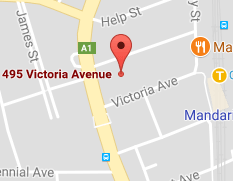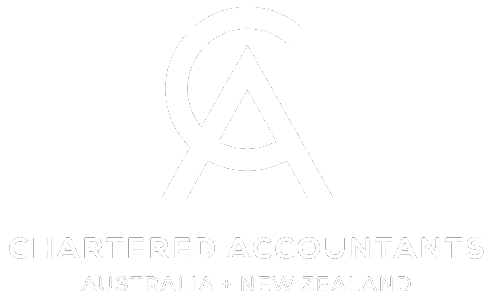Welcome to our August 2019 edition of the StewartBrown newsletter. We hope to keep you informed of the important tax developments and issues affecting businesses in Australia today.
INACTIVE, LOW VALUE SUPER
Over the last 6 months The ATO has paid out over $120 million in lost and unclaimed superannuation to individuals. A recent change in legislation requires inactive, low-balance super accounts be transferred from fund managers to the Tax Office. The ATO then needs to either pay out the unclaimed money directly to individuals if they meet the eligibility criteria or to arrange for those funds to be consolidated with other (more current) superannuation accounts. The aim of this legislation is to protect super accounts from fee erosion.

Your MyGov account (linked to the ATO) is where you will be able to view any of these low balance, inactive super accounts that they are holding for you. If you have any of these funds being held by the ATO and would like them paid out, you can arrange for that to happen via your MyGov account or by asking your StewartBrown Partner or Manager to explain how we can assist you with that.
Alternatively the ATO will actually assist you with consolidating your super into your preferred superannuation fund rather than having the funds paid out to you.
What is an inactive low-balance account?
Generally, a super account is an inactive low-balance account if the following criteria are met:
- no amount has been received by your fund for crediting to that account for your benefit within the last 16 months
- the account balance is less than $6,000
- you have not met a prescribed condition of release
- the account is not a defined benefit account
- there is no insurance on the account
- the account is not held in a self-managed super fund (SMSF) or small Australian Prudential Regulation Authority (APRA) fund
However, the account will not be an inactive low-balance account if any of the following have occurred in relation to you in the last 16 months:
- you have changed your investment options
- you have made changes to your insurance coverage
- you have made or amended a binding beneficiary nomination
- you have made a written declaration that you are not a member of an inactive low-balance account
- there was an amount owed to the super provider in respect of you.
Superannuation is an important component of everyone’s retirement planning strategy and we encourage all our clients to stay in control of their super. If you need any assistance in doing that please contact us.
HECS/HELP DEBT REPAYMENTS FOR OVERSEAS AUSTRALIANS
If you have a HECS/HELP (or any similar type of student debt) and you are about to leave Australia (or have already left!) there are some mandatory things you need to do.
If you intend being away for more than 183 days and are going to be working overseas, you need to inform the ATO that you are leaving by completing an "Overseas travel declaration form". These can be done via your MyGov account or a Tax Agent (such as StewartBrown) can lodge them for you.

Every financial year (July - June) you then need to assess how much you have earned from any source anywhere in the world (the same as if you were here in Australia). If this amount is less than $A12,989, you need to send a non lodgement advice to the ATO, either via your MyGov account or ask a Tax Agent to do that for you. There will be no HECS debt repayment required in this case. If however you annual worldwide income from all sources (eg wages, interest, dividends, trust distributions, capital gains etc. etc.) is more than $A12,989 (again July-June) then you must report that information via your MyGov account or lodge a tax return yourself or through a Tax Agent. The ATO will then assess you for any applicable HECS debt repayments.
If you do not lodge a tax return or non lodgement advice the ATO will eventually catch up with you. There are information sharing arrangements in place between the ATO and many overseas tax authorities so the best thing to do is make sure these things are attended to each year. You don't want to come home to a tax debt with penalties!
StewartBrown can of course assist you with these matters if needed.
R & D TAX INCENTIVE
The R & D tax incentive provides a tax offset for eligible Research and Development (“R&D”) activities and is targeted toward R&D that benefits Australia. The tax incentive amounts to a tax refundable offset (tax rebate) of 43.5% of the eligible R&D expenditure for entities with a turnover of less than $20m. For entities with an aggregated turnover greater than $20m, a 38.5% non refundable tax offset is available. Expenditure claimed as eligible R&D expenditure is not tax deductible.
The program is administered jointly by AusIndustry (on behalf of Innovation Australia) and the ATO.

Eligibility
To be eligible for the R&D tax incentive you must be an R & D entity, you must be engaging in eligible activities and in most cases have notional R&D expenses of at least $20,000.
Registering
You must register your R&D activities each year with AusIndustry prior to making a claim for the R&D tax incentive in your company's tax return. If you have been conducting R&D in the past (and haven’t already lodged your 2019 Taxation Return) and would like to register, please contact your StewartBrown Partner or Manager without delay. In addition if you are carrying out any R&D activities in the current financial year and would like to find out if you might be eligible for the tax incentive, please contact our office to discuss your potential eligibility.
Applications for the R&D tax incentive for the 2019 year must be lodged with AusIndustry by 30 April 2020.
Record keeping requirements
AusIndustry will require you to keep records of experimental activities (eg experimental report, testing and analysis report, progress report, before and after photos, minutes of meetings, correspondence etc). The ATO will require substantive records of the R&D expenditure which must include detailed timesheet records of employees engaged in R&D activities, invoices of contractors and other relevant expenses etc. It is essential that timesheets are kept detailing the core and separately the supporting R&D activities undertaken.
Your StewartBrown Partner or Manager can assist you with any R&D tax incentive questions you might have.



